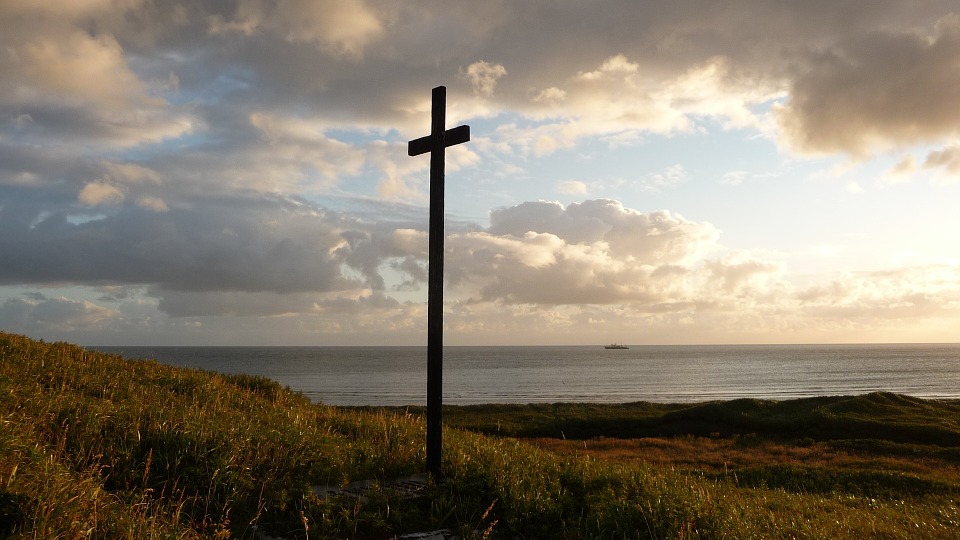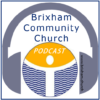Grief, Mourning and the Christian
(Jon Petts)
I prefer not to wear my heart on my sleeve.
If I’m feeling something emotional I’d rather deal with it on my own. And when I do let my emotions out I feel vulnerable and regret it pretty soon afterwards.
Maybe it’s because I’m British! We’ve all heard of the British stiff upper lip after all!
Holding our emotions in can help us to deal with all sorts of situations. Certainly as a teacher keeping your cool when there is chaos around has proven to be essential. But bottling up everything permanently is unhealthy and not God’s design for us as human beings.
During the COVID-19 pandemic, everyone has suffered losses. For some it’s the loss of loved ones, for others the loss of routines and the familiar, the missed family gatherings or coffee with friends, the cancelled holidays and postponed weddings, even the loss of going into the office every day.
Any loss, big or small can cause us to experience grief. And the bigger the loss, the greater the grief. A war widow will know greater loss than the person who loses a favourite jumper.
Christian psychiatrist Curt Thompson defines grief as
“Our emotional inflammatory response to loss… when we are deprived of anything to which we have a significant emotional attachment…”
So grief is our emotional response to loss, whatever the loss is. If it was something significant to us and we lose it, we will experience grief.
I’m told that we can compare grief with physical injury. When our bodies suffer harm we feel physical pain and there is a wound that needs to heal. In a similar way, grief pierces the soul and causes some kind of inner wound.
The injury of grief is worse when the thing or person you have lost is more important to you. So when we scratch ourselves pulling out brambles, the injury is minor and will heal quickly, but when we incur a more serious injury, it may take specialist help and time to heal. Grief too can be serious and deep or just a moment to work through.
In John 11 we see a beautiful picture of Jesus in all his humanity as well as the ultimate power he held as Son of God. We also can learn something about the grieving process.
John 11
Now a man named Lazarus was ill. He was from Bethany, the village of Mary and her sister Martha. 2 (This Mary, whose brother Lazarus now lay ill, was the same one who poured perfume on the Lord and wiped his feet with her hair.) 3 So the sisters sent word to Jesus, ‘Lord, the one you love is ill.’
4 When he heard this, Jesus said, ‘This illness will not end in death. No, it is for God’s glory so that God’s Son may be glorified through it.’ 5 Now Jesus loved Martha and her sister and Lazarus. 6 So when he heard that Lazarus was ill, he stayed where he was two more days, 7 and then he said to his disciples, ‘Let us go back to Judea.’…
17 On his arrival, Jesus found that Lazarus had already been in the tomb for four days. 18 Now Bethany was less than two miles from Jerusalem, 19 and many Jews had come to Martha and Mary to comfort them in the loss of their brother. 20 When Martha heard that Jesus was coming, she went out to meet him, but Mary stayed at home.
21 ‘Lord,’ Martha said to Jesus, ‘if you had been here, my brother would not have died. 22 But I know that even now God will give you whatever you ask.’
23 Jesus said to her, ‘Your brother will rise again.’
24 Martha answered, ‘I know he will rise again in the resurrection at the last day.’
25 Jesus said to her, ‘I am the resurrection and the life. The one who believes in me will live, even though they die; 26 and whoever lives by believing in me will never die. Do you believe this?’
27 ‘Yes, Lord,’ she replied, ‘I believe that you are the Messiah, the Son of God, who is to come into the world.’
28 After she had said this, she went back and called her sister Mary aside. ‘The Teacher is here,’ she said, ‘and is asking for you.’ 29 When Mary heard this, she got up quickly and went to him. 30 Now Jesus had not yet entered the village, but was still at the place where Martha had met him. 31 When the Jews who had been with Mary in the house, comforting her, noticed how quickly she got up and went out, they followed her, supposing she was going to the tomb to mourn there.
32 When Mary reached the place where Jesus was and saw him, she fell at his feet and said, ‘Lord, if you had been here, my brother would not have died.’
33 When Jesus saw her weeping, and the Jews who had come along with her also weeping, he was deeply moved in spirit and troubled. 34 ‘Where have you laid him?’ he asked.
‘Come and see, Lord,’ they replied.
35 Jesus wept.
36 Then the Jews said, ‘See how he loved him!’
37 But some of them said, ‘Could not he who opened the eyes of the blind man have kept this man from dying?’
38 Jesus, once more deeply moved, came to the tomb. It was a cave with a stone laid across the entrance. 39 ‘Take away the stone,’ he said.
‘But, Lord,’ said Martha, the sister of the dead man, ‘by this time there is a bad odour, for he has been there four days.’
40 Then Jesus said, ‘Did I not tell you that if you believe, you will see the glory of God?’
41 So they took away the stone. Then Jesus looked up and said, ‘Father, I thank you that you have heard me. 42 I knew that you always hear me, but I said this for the benefit of the people standing here, that they may believe that you sent me.’
43 When he had said this, Jesus called in a loud voice, ‘Lazarus, come out!’ 44 The dead man came out, his hands and feet wrapped with strips of linen, and a cloth round his face.
Jesus said to them, ‘Take off the grave clothes and let him go.’
What do we learn about grieving from this passage?
1. Mourning was a normal part of Jewish practice.
19 and many Jews had come to Martha and Mary to comfort them in the loss of their brother.
This was normal.
Jairus’ daughter: Mark 5 38When they came to the home of the synagogue leader, Jesus saw a commotion, with people crying and wailing loudly.
The death of Saul: 2 Samuel 1 11 Then David and all the men with him took hold of their clothes and tore them. 12 They mourned and wept and fasted till evening for Saul and his son Jonathan, and for the army of the Lord and for the nation of Israel, because they had fallen by the sword.
And healthy.
Grief must be acknowledged. Mary and Martha did not pull themselves together and show a stiff upper lip.
If I sprain my ankle walking the dog but do not acknowledge this injury, I might go out on a 10 mile hike with him the next day, but it won’t be long before the injury stops me from moving forward. And in our emotional response to loss we must acknowledge the injury and know how to let it heal.
But the danger is, we look around us and see others who are in more pain. Mary and Martha could have said,
“Yes Lazarus died, but he had a good life. He got to meet Jesus. We had a great brother and have some good memories. Let’s move on. After all, so-and-so down the road suffered terribly with leprosy and now his widow is all alone and much worse off than us…”
It’s tempting to bury the feelings as they come along and keep minimizing the losses that accumulate within us. Then the next time something sad happens they all come to the surface at once because the brain is seeing an opportunity to deal with something. God wired us this way so that we would not let old wounds fester but seize their moment to find their healing. In Curt Thompson’s words,
“God will use the grief of the present moment to bring into the light as much of our grief as we are willing to admit.”
So the more we bury grief, the more it will come back when we feel sad about something else.
It’s healthy to acknowledge grief, but not alone…
2. Mourning was a group activity
31 …the Jews who had been with Mary in the house, comforting her…
They didn’t just join for a funeral and go their merry way. They were in her house. They got in her business so to speak.
Mourning with others was normal in Jewish culture too.
Widow at Nain: Luke 7 12As he approached the town gate, a dead person was being carried out – the only son of his mother, and she was a widow. And a large crowd from the town was with her.
As we have been considering our values as a church, the fourth value is ‘Oneness – being a loving church family.’ Oneness God’s way requires openness. There are some things you cannot and were not meant to bear alone. We don’t just need to name our sadness. We have to name it to someone who understands, who can show compassion.
3. Jesus did not discourage outward expressions of grief
33 When Jesus saw her weeping, and the Jews who had come along with her also weeping, he was deeply moved in spirit and troubled.
This wasn’t because he wanted them to pull themselves together. He did not chastise them for mourning. He joined with them and understood.
Paul would later tell the Romans (12:15) to mourn with those who mourn. I believe Jesus was doing this here.
4. Jesus expressed grief
35 Jesus wept.
Some have said that Jesus was weeping with Mary and Martha, empathising with their grief. I believe that in the moment, the ‘God who is’, Jesus our saviour who loved Lazarus saw first hand the loss of Lazarus and what life was like without him.
There is one who feels the greatest of compassion and empathy with us when we are in emotional pain – Jesus. He wept with Lazarus’ sisters, he mourned over Jerusalem’s unwillingness to be gathered like chicks under a mother hen’s wings, sweat drops of blood in Gethsemane and faced the ultimate loss of life at the cross.
5. Jesus expressed grief even when he knew that Lazarus would soon be alive again
38 Jesus, once more deeply moved, came to the tomb.
Jesus had already declared that this would not end in death. He knew what he was doing and he knew the outcome. But he was there in the moment. While we are grieving he may completely know the positive outcomes and how great heaven will be one day for us, but he still experiences first hand what we are going through.
6. Jesus demonstrated power over the cause of grief
44 The dead man came out, his hands and feet wrapped with strips of linen, and a cloth round his face.
He also said that in this world you would have trouble and grief but that we are to ‘fear not’, or to ‘be of good cheer!’ For he has overcome the world.
Yes he weeps with us and understands our grief. But he wants us to process it with him and walk us into a new season.
Whatever loss we are grieving today, whatever pain we feel inside, first we must acknowledge it and do so before God and in the safety of someone else’s listening ear who will have compassion on us and not tell us to pull ourselves together! But we must ultimately look to Jesus who defeated death for us. He weeps with us and instructs us to weep with those who weep. But his heart is not that we stay in the sadness forever. The mourning is a process we go through so that we can heal and know his joy again.
Would you bring your grief to Jesus this morning and consider sharing it also with someone you know who might have compassion?
Would you consider being a person of compassion to someone who is grieving?
Podcast: Play in new window | Download | Embed
Subscribe: RSS



